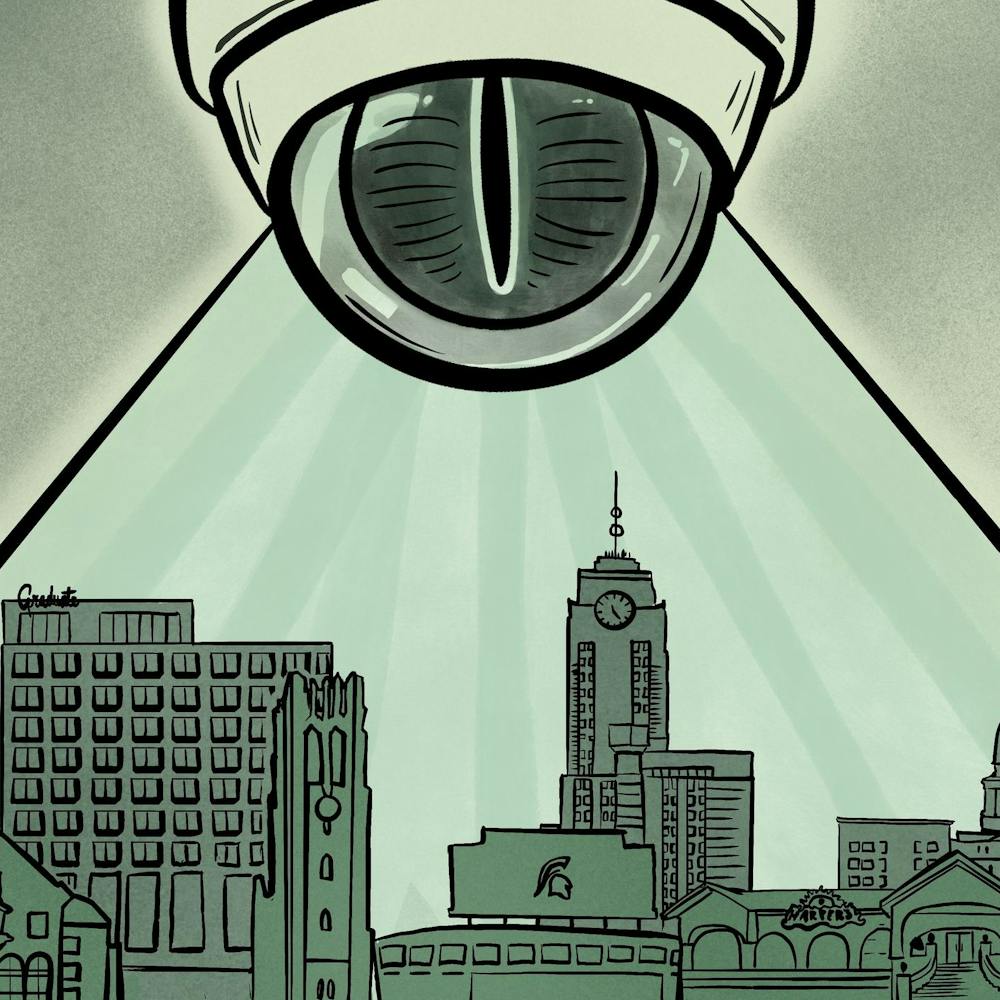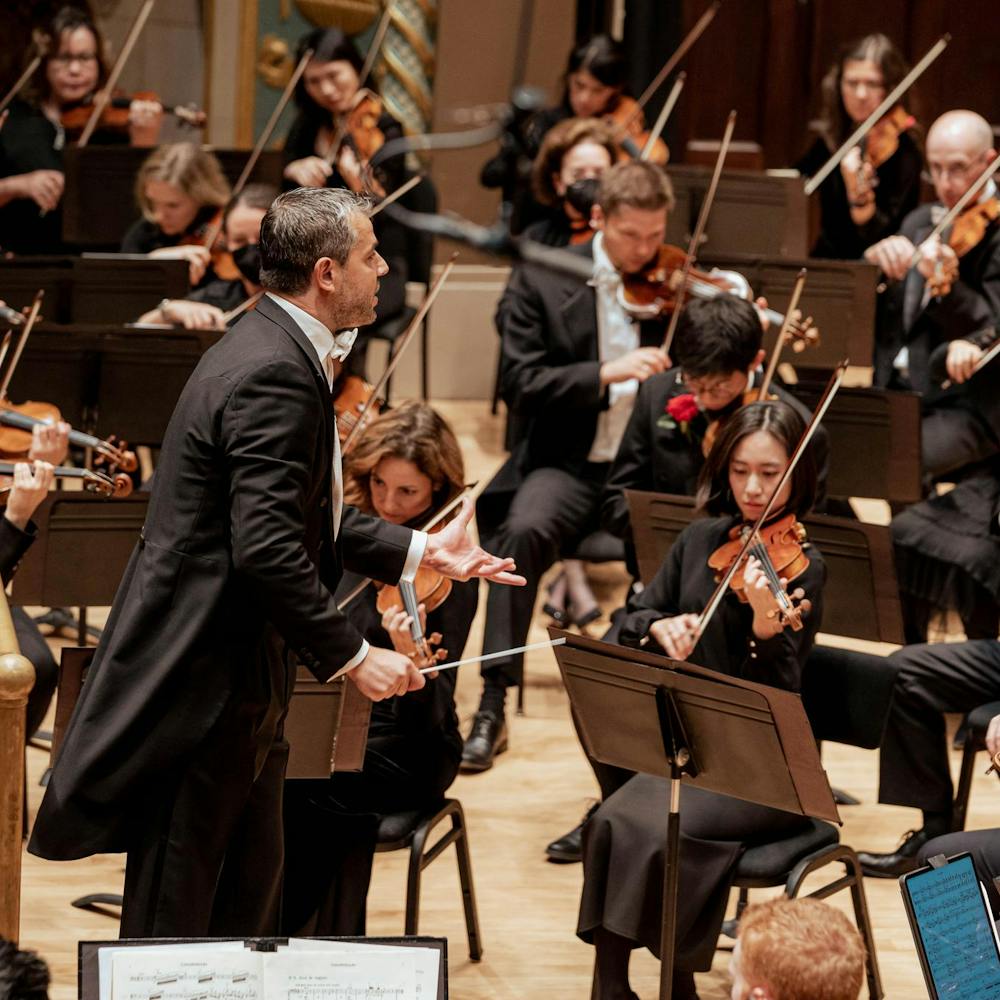Though college brings excitement and adventure for freshmen, one factor of college life could rain on their parade - the threat of weight grain amidst a sea of fatty food.
You've heard the horror stories. Normal teenagers - good citizens from regular, everyday towns - move away to college and pack on pound after pound until they get so big, they are no longer able to fit onto their twin extra-long sized bed, or something like that.
It's the fear of the "Freshman 15." Frightening, yes. True? Maybe.
The "nightmare" came true for Katie Gerst who lived above the Yakeley Hall cafeteria her freshman year and was easily lured downstairs by the sweet smells of brownies baking and chicken nuggets frying.
"You can just walk your (butt) downstairs in your pajamas and eat and go back to bed." Gerst, a then-psychology sophomore, said. "You don't get any exercise like that. I thought being on the third floor would help - it didn't."
Whether it's filling a tray in a residence hall cafeteria, or getting the maximum allowable snacks at Totally Takeout, some students say it's common for freshmen to eat unlimited food, and the weight gain is inevitable.
"If you have self control and limit yourself, maybe you can avoid it," Gerst said.
"But it's too easy to overeat," added Katie Clar, who was eating in Mason Hall's Totally Takeout with Gerst. "You see all these choices in the cafeteria and all the deserts - if it looked good, we just loaded it on."
Clar, a then-family community services junior, said she gained about 20 pounds during her first year at MSU.
It's safe to say most college students have less-than-healthy eating habits, since the junk food in college towns flows freely like, well, Hershey's Syrup.
Pizza, French fries and PB&J. Twinkies, Ramen noodles, chips and salsa. You name it, we'll eat it - with double cheese, please.
Students usually chomp on grub from the four basic food groups - pizza, chips, soda and candy. But not all students eat greasy snacks 24/7. Some decide to go with a nice healthy salad topped with cheese, bacon bits and extra buttermilk dressing, or a residence hall cafeteria baked potato loaded with extra sour cream. Potatoes are healthy, right?
College is a time of total food freedom. Cafeterias on campus and restaurants in East Lansing provide unlimited opportunities for concoctions to tickle anyone's taste buds.
But with all this sugar and grease nearly overflowing the city, will new Spartans be the next victims of the dreaded freshman 15?
A study performed at Cornell University found students gain an average of 4.2 pounds during the first 12 weeks of school. Not quite 15 pounds, but the sudden weight gain can come as a shock to some students.
"More than anything, it's the late-night pizza runs that put on the pounds," John Engle, then a civil engineering junior, said.
The study used 60 freshmen who weighed in at the beginning and end of the semester. The students gained about 0.3 pounds per week, which is almost 11 times more than average weight gain of 17-and 18-year-olds and almost 20 times more than an average American adult.
Engle said he didn't gain weight during his freshman year because he ran often and didn't go nuts in the cafeteria or eat nonstop.
The idea of the freshman 15 might be a bigger issue for female students, Engle said.
"I don't think it goes through guy's minds as much," he said. "It didn't even cross my mind."
No need to freak out just yet. MSU dietitians and health experts say not everyone is doomed to pack on the pounds. Students who exercise and eat healthy won't have any problem avoiding the weight gain.
But how easy is it to eat right when it seems everywhere you turn there's another yummy treat? And not everyone wants to head to the gym after a long day of class.
Then-education sophomore Kristian Coronado thought a gym membership would keep her from experiencing the freshman 15, but she said she was only motivated to work out a handful of times.
"At first, I thought 'Oh, I won't gain weight, I'm walking all the time,'" said Coronado, who gained about 18 pounds her freshman year. "I ate unlimited food, and I gained a lot."
But some MSU dietitians and health experts say it's not only the Oreo cookies and burgers that cause students to work twice as hard to squeeze into their jeans. Just growing up can add extra poundage.
"College students are still growing, their bone density is increasing and many are also gaining muscle mass," said Ronda Bokram, a registered dietitian and staff nutritionist at Olin Health Center. "All of these are natural aspects of maturing, and they can contribute to weight gain."
Bokram said recent research shows student weight gain is a result of maturing bodies, with male students gaining an average of six pounds in their first year, while female students gain on average, 4.6 pounds during their freshman year.
Cassie Hunter, a 2003 English graduate, said her freshman year was jam packed with activities and partying - so much so that she never fell under the wrath of the dreaded freshman 15.
"I didn't gain any weight. I lost a lot," Hunter said. "I usually ran four miles a day, rollerbladed, boxed and danced all night at parties. Dancing all night is good exercise."
Students who live in the residence halls have almost unlimited eating options, which might be the cause of the extra inches around their waist, said Bruce Haskell, food services coordinator for the residence halls.
But students who don't eat excessively big portions won't have much trouble avoiding weight gain, he said.
"Everything in moderation can be consumed," Haskell said. "Students who go into the cafeterias like a kid at a candy store, eating soft serve ice cream at every meal, taking unlimited quantities, are going to see some weight gain."
Haskell also said students who are 18 to 19 years old have slower metabolisms than in high school when they might have kept active with sports.
But a big factor in whether students will gain pounds is metabolism, Haskell said. Turning into a college couch potato and becoming less active than in high school can slow students' metabolisms.
"Some kids gain, some kids lose weight," he said. "There's going to be people on both ends of the spectrum."
Staff writers Evan Rondeau and Joseph Montes contributed to this report.





